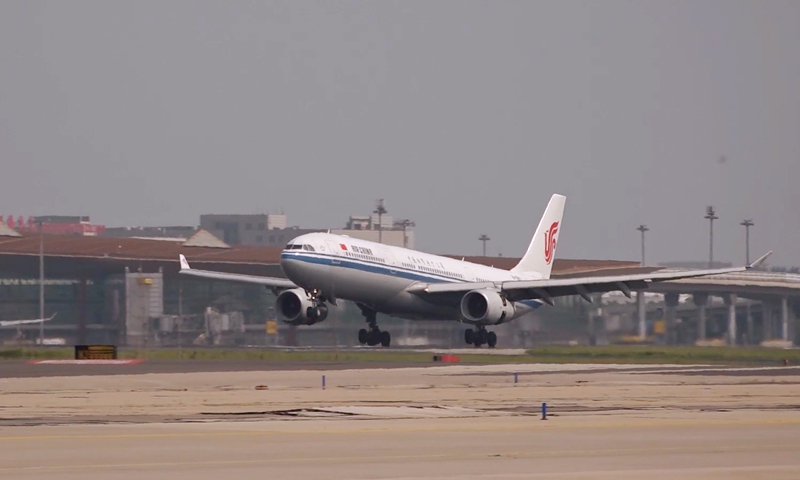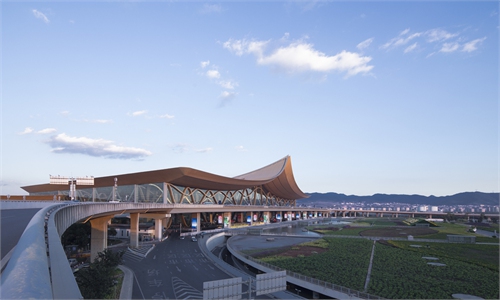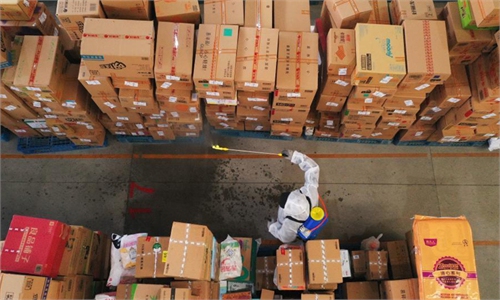
Photo: Courtesy of Air China
Chinese airlines are scrapping fuel surcharges starting from Wednesday, reversing a decision to reimplement the levy just two months prior, according to airlines including Air China.The move, which comes ahead of the busy Spring Festival travel season, is aimed at easing cost pressures on the travelling public in the face of the ongoing pandemic.
Flying from Beijing to Hangzhou, East China's Zhejiang Province as an example, with a flight distance of 1,200 kilometers, the cost of air tickets booked on January 5 will be 20 yuan ($3.15) cheaper than the same ticket the month before.
Over the past five years, domestic fuel surcharge prices have undergone several adjustments. On June 5, 2018, airlines chose to reintroduce a fuel surcharge on domestic routes. Within a year, the levy increased three times, and was not cut until December 5, 2018.
As of January 5, 2019, domestic airlines suspended the collection of fuel surcharges for domestic routes. Passengers only needed to pay for the cost of the flight and a 50 yuan fee for the civil aviation development fund for domestic flights, a policy which was kept in place for two years.
The latest reintroduction of fuel surcharges for domestic routes was on November 5, 2021, only two months prior to Wednesday's latest adjustment.
The Spring Festival travel rush, the world's largest annual human migration, will take place from January 17 to February 25 this year.
The number of passenger trips during the travel rush will rise sharply from the figure recorded in the corresponding period of 2021, a transport official said on December 29, 2021.
While travel during the holidays is expected to bounce back from 2021 levels, total trips will likely remain at only half of regular levels prior to the outbreak of the pandemic in 2020.
China is nearing herd immunity with 85.64 percent of the Chinese population fully vaccinated ahead of the upcoming Spring Festival, said the National Health Commission.
Given such a high vaccination rate, together with China's well-tested dynamic zero-case policy, experts said the possibility of a major viral resurgence during the festival season remains low.
Global Times


